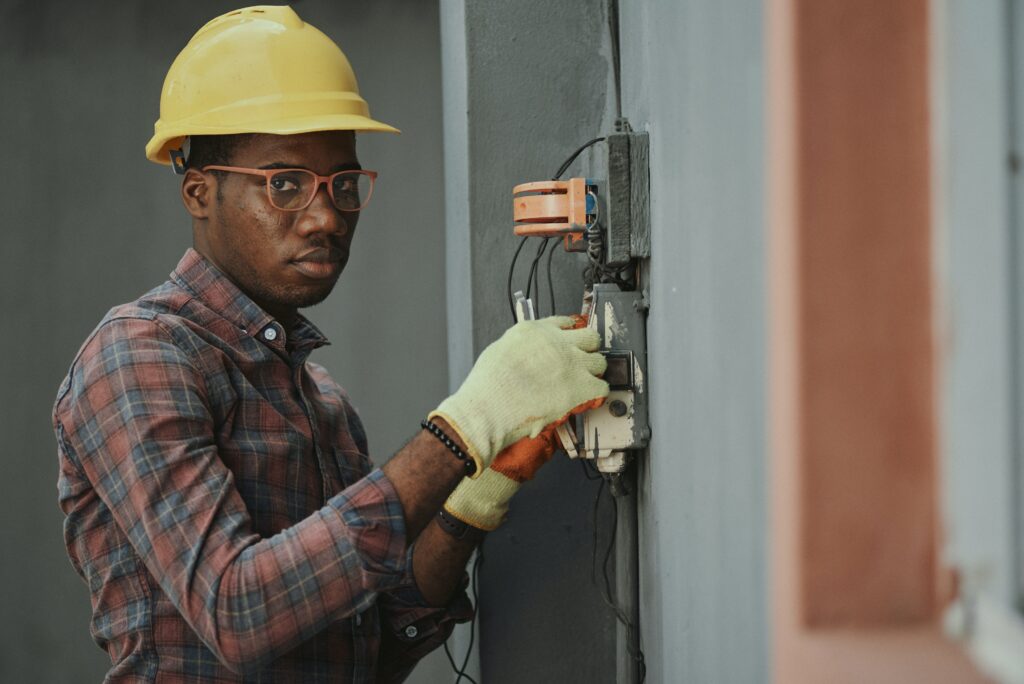Finding the correct electrician can be as much about safety as it is about getting your money’s worth because electrical faults are one of the top causes of house fires.

In addition, electrical work must be done by the book – specifically, the National Electrical Code book – and must adhere to all building department code standards. Asking these ten electrician questions can assist you in locating a top electrician in your area with the appropriate experience and business practices for your needs.
1. Do you have a license?
Electricians are obliged to be licensed in most states and municipalities, so don’t hire one who isn’t. There are two fundamental levels of certification: A master electrician has at least two years of professional experience and is certified in electrical system design and installation. A journeyman is only authorized to install. Journeymen are required to work alongside masters in some areas.
2. Do you have insurance?
Given the potentially significant liability for this service, this is undoubtedly one of the deal-breaker electrical questions. Electrical contractors should be insured for at least $500,000 in liability and workers’ compensation.
3. What is your primary line of work?
Like many other contractors, electricians frequently specialize in one or more areas. If your project involves finished areas, for example, seek someone that specializes in remodels rather than new construction.
4. Do you have any specialized training or experience for this type of work?
If your project requires specialized knowledge, such as installing voice/data cabling, home automation systems, or solar equipment, this should be one of your electrician inquiries. Even if another contractor handles the specific work, it’s advantageous if your electrician has prior familiarity with those systems and protocols.
5. Will you supply recommendations (from previous tasks that are similar to mine)?
References are especially crucial when selecting electricians because it’s difficult to gauge the quality of their work when you can’t see most of it and don’t know what to look for (see item 10 for tips).
6. What is included in your estimate?
Be sure to discuss incidentals, such as replacing drywall and other items affected by the electrical work, in addition to the pricing structure. You’ll almost certainly be held accountable for them.
7. Do I require a permit? Who will get it?
A permit assures that any electrical work is inspected by a city inspector, which is a vital precaution for homeowners. Electrical contractors (not homeowners) are required to obtain permits.
8. Who will do the work?
Don’t assume that the individual with whom you speak will be making all of the efforts. Inquire about hourly rates for various credentials (master electrician vs. journeyman/apprentice or any mix of workers). If you believe your position necessitates the knowledge of a master, address this with your boss right away.
9. What guarantees/warranties will you provide?
Determine how well a professional stands behind his electrical work. Also, remember that electricians frequently assume responsibility for fixtures, devices, and other equipment purchased through their professional accounts for you.
10. May I view a work-in-progress?
Depending on the nature of your project, it may be beneficial to pay a visit to an electrician’s current work to get a behind-the-scenes look at his work. In general, you’re searching for evidence of deliberate, organized installation:
- Neat cable runs near the service panel (breaker box)
- Clear labeling of circuit breakers
- Regular anchoring of cables
- Switch boxes that sit squarely and finish flush to the drywall surface, etc.
A reliable electrician, like a plumber, doctor, or auto mechanic, is an important component of a household maintenance team. Listen for a panel-side demeanor as you go through your list of electrician questions; you want someone who explains what he’s doing and why and who will assist you comprehend the fundamentals of your system (or as much as you care to know). Ideally, the electrician you choose now will be a reliable resource for future crises and projects.
